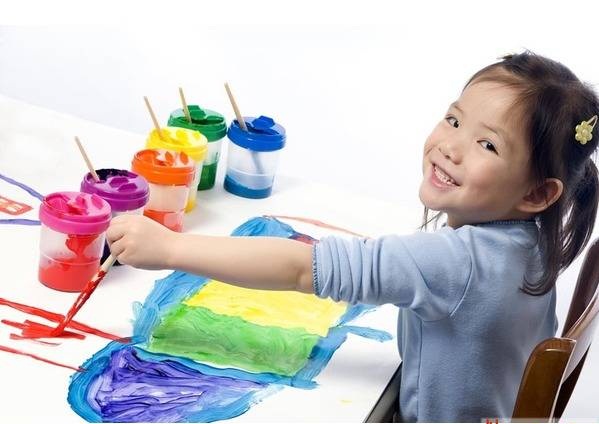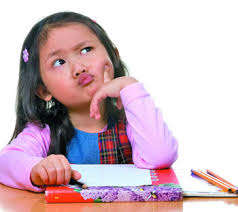Category Archives: Classical Curriculum preschools
What are Classical Curriculum Preschools?
If you are thinking about types of preschools for your child, or the possibility of homeschooling, it is important to look at different curricula. While the school your child attends is also important, the type of material taught at that school holds greater weight. When speaking about the classical curriculum, we are referring to the Christian curriculum teachings that put a greater emphasis on traditional liberal arts.

These teachings focus on mathematics, languages and reading from a classical point of view, with a lot of importance given to the teachings of old Athens, Rome and other European areas. Classical curriculum preschools focus on this type of schooling and give children a great foundation for the rest of their academic career.
Not only is this type of education great for your child’s critical thinking, but it also gives them a great background into the ways of Christians and a look at the history of Europeans and Americans. Most preschools can give you a list of books they are using. These classical curriculum preschools give great importance to the well-rounded education children receive. Instead of only teaching them the very basics in math and English, kids get to work on different subject, learn other languages and fully engage with their teachers.
Of course, not all of this learning takes place in preschool. However, enrolling your kid in one of the classical curriculum preschools is the best way to give them a head start. By the time they are in second or third grade, they already have a deep appreciation for this method of teaching. They are also better and more curious learners, because they know a wide variety of skills from a young age.
The classical curriculum has a number of objectives. For one, students are taught about the past. This education is not about glorifying the past and getting students to live by those exact methods. Instead, it is about looking at what was done correctly and incorrectly hundreds of years ago. This gives students a chance to appreciate the progress made since then, while also knowing where their families and ancestors came from. While the flaws of the past are acknowledged, they are not the primary focus.
In contrast, traditional schooling has a way of spending too much time looking at how past generations made mistakes. There is a lot of focus on these unsavory ideas, instead of bringing the progress and good decisions to light.
Aside from a clear instruction of the past, classical curricula also focus on making students into keen thinkers and learners. It is not always about listening to the teacher and repeating whatever information they tell you. This form of education wants students to become curious. They want students who are willing to think outside the box and take an active role in their education.
If you want your child to get started with this type of education from a young age, consider one of the many Christian curriculum preschools in your area. It is the best way to give them a broad and deep understanding of the past, present and future.
For More Information About Classical curriculum preschools Visit Us.
Source: Click Here
Exploring Classical Curriculum
If you have any involvement in education, it’s likely that you’ve heard of the classical curriculum movement. There are a number of different people who have really started to push this sort of education as being important to the educational process.

Classical curriculum uses three levels of education – primary education, secondary education, and tertiary education.
Primary education is for younger students, secondary education is for older students, and tertiary education is what many of us refer to as college.
- Primary education focuses on grammar (language), rhetoric (the ability to argue and debate with others), and logic (the ability to process information and make sense of it). Since many curricula now focus on testing requirements, primary students do not get as many of these elements and most schools don’t explore some of them until secondary education has begun.
- Secondary education used to be referred to as the “quadrivium”, focusing on four main areas of thought – geometry, music, arithmetic, and astronomy. These areas of thought are much more abstract, which helps to challenge students that were used to working with tangible objects and ideas. Students that are in secondary education learn how to manipulate ideas better, and to utilize those ideas in order to discover how the world around them came to be.
- Tertiary education is what has developed into university or college for many of us. This is where a student would learn the specific skills that they would need in order to succeed in a particular field. Classical curriculum is where the modern idea of “majors” and “minors” have come into play at universities. In some schools that work with classical curriculum, they will also start this sort of teaching methodology during their high school years, in places such as tech schools or by working with colleges to do early start programs for some general education courses.
If you’re looking for a school that uses a primary Classical curriculum as part of their educational system, then you will want to check out East Lake Academy, a private, Roman Catholic school that is supported by the Chicago Archdiocese. Check out their website at http://eastlakeacademy.org, or, call them at 847.247.0035.
How Does the Classical Curriculum Help Children?
From a young age, children’s minds are shaped by their educators. While the values of your parents are also very important, most kids learn to think and form opinions when they are at school. They also develop their ability to think, be creative and play an active role in their education. Instead of putting your child in a regular school where they will probably receive a sub-par education from an overworked instructor, think about a classical curriculum school. These teachings place a very heavy emphasis on liberal arts, history and the Christian philosophies.

By looking at the Romans, Greeks and other Europeans for inspiration, the classical curriculum features teachings of other languages, an in-depth look at the history of Europe and the United States, and a deep education into various subjects. The classical curriculum is not about creating students who can recite sentences or memorize math solutions. Instead, it is about creating critical thinkers who can use a variety of means to improve their knowledge.
There is absolutely nothing wrong with having a heavy focus on the past. After all, we would not be here if our previous generations had not made so much progress. There is a benefit to understanding the roots of Christianity, how it manifested in areas such as Athens and Rome, and how it has evolved since then. In addition, a liberal arts basis for your child’s education makes them into a well-rounded individual. It is no good excelling at math if you cannot communicate or articulate your thoughts to others. The classical curriculum emphasizes every subject.
Sometimes parents think about putting their child in such a school when they are older. However, it is beneficial to start from preschool if you want your child to learn this curriculum properly. That way, they become critical thinkers and open-minded individuals from when they are very young.
One of the biggest drawbacks of a typical education in this country is the way the past is taught. So many classes spend time dealing with American and World history, but it seems as if the past mistakes of our ancestors take up the primary focus. There is so much taught about wars and slavery and other topics, while the progress we made as humans is ignored. That is not to say we should ignore past mistakes, but it is also good to show our children how their ancestors struggled and overcame obstacles to build modern cities and societies.
When your child gets educated through the classical curriculum, they are proud of the past and willing to change the future. By understanding both the good and the bad from the past 100 or 200 years, they are in great shape to become active thinkers and leaders in the future.
We do not want students who are simply reciting words their teachers told them, or studying in order to pass tests. We want students who are genuinely curious and excited about the world around them. A student studying math should want to learn the different formulas and methods, not just endure them for the sake of getting a grade.
Source: Click Here